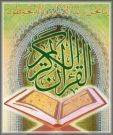Saturday, October 18, 2008
Monday, October 13, 2008
Friday, October 10, 2008
Thursday, October 9, 2008
Monday, September 15, 2008
Sunday, September 14, 2008
Kaedah Pengajaran Era Khulafa' Rasyidin
Sunday, September 7, 2008
Wednesday, September 3, 2008
Thursday, August 28, 2008
Monday, August 25, 2008
Monday, August 18, 2008
Sunday, August 17, 2008
Saturday, August 16, 2008
Saturday, August 2, 2008
MAKTABA SHAMELA :
COMPREHENSIVE PERSONAL DIGITAL LIBRARY
Assoc. Prof. Dr. Hj. Su’aidi Dato’ Hj. Safei
Universiti Brunei Darussalam
Abstract
Over the last decade, a quiet revolution has been going on in the development of a large library of “digital” or “electronic” books. We heard different names for libraries of the future “Cybrary, hybrid libraries, virtual library, electronic library, digital library, networked library, library without walls.”
The problems faced by the learners in doing their researches and assignments commonly due to the lack of library access after the designated hours and the lack of information searching skills. This paper proposes an ICT tool that integrates elements of e-library services within e-learning environment, using the Maktaba Shamela (Comprehensive Library) as a model.
With the emergence of this personal digital library, learners would be able to access e-resources and relevant databases when searching for materials to incorporate into their academic works. Benefits of running Maktaba Shamela:
* Characterized by convenience and speed in the show database search results required to provide time for researchers in thousands of books.
* Characterized by a combination of ancient heritage of collections, including many of the traditional books and modern academic researches and developments.
* Extremely useful and extendable interface. Provides the possibility of browsing and loading thousands of books compatible with Maktaba Shamela from many different formats, link them to authors, search any number of them, export them, etc.
* Free to upload and add resources to form special libraries in individual capacity.
* No commercial cost, not bound to any application or registration requirements, restrictions or obstacles or encryption.



















